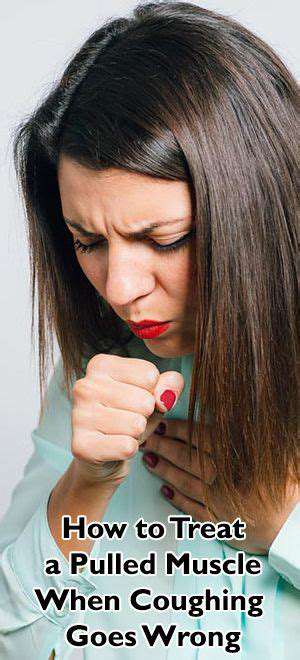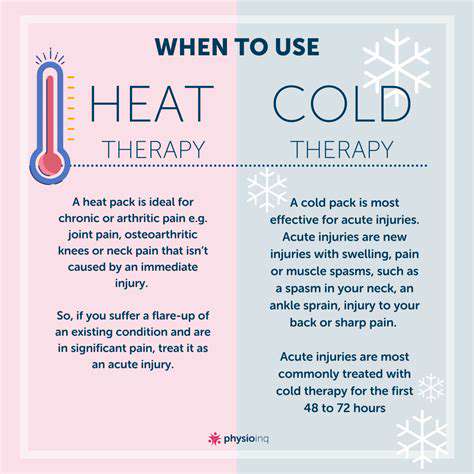Muscle Strain Coughing: Causes, Symptoms, and Relief Strategies
What Causes Muscle Strain During Coughing?

Understanding the Mechanism of Muscle Strain During Coughing
Coughing is a body reflex designed to clear the airways of irritants, but it can often lead to unexpected muscle strain. When we cough forcefully, the muscles in the chest, abdomen, and back are engaged rapidly and intensely. This sudden contraction can create tension and, in some cases, damage these muscles. Most individuals are unaware of the physical strain that comes with a persistent cough, leading to potential injury over time.
The act of coughing can be exacerbated by conditions such as allergies, respiratory infections, or chronic illnesses, all of which increase the frequency and intensity of coughing. As the cough persists, so does the strain on the muscles, increasing the risk of muscle strain. Understanding this mechanism can help people recognize the importance of treating underlying conditions.
Additionally, factors like poor posture or lack of fitness can worsen the situation. Weak abdominal muscles may not provide adequate support to the surrounding muscle groups during a cough, leading to greater susceptibility to strains. In essence, a strain during coughing can often be a reflection of overall muscle health and physical conditioning.
Recognizing the warning signs of muscle strain is crucial. Initial discomfort may escalate to sharp pain, which can limit mobility and lead to a decrease in overall activity levels. Immediate attention to these symptoms can prevent further injury and promote quicker recovery.
Ultimately, understanding the connection between coughing and muscle strains can help individuals take proactive steps in managing their health, including seeking medical advice as necessary and engaging in strengthening exercises.
Relief Strategies for Muscle Strain from Coughing
When dealing with muscle strain caused by coughing, it's essential to first understand how to alleviate the discomfort effectively. Resting the affected muscles is critical, allowing them to heal without further strain. Icing the strained area can reduce inflammation and provide immediate pain relief. Typically, applying ice for 15-20 minutes several times a day can be beneficial.
Over-the-counter pain medications, such as ibuprofen or acetaminophen, can provide temporary relief for muscle strain. However, it’s advisable to consult with a healthcare professional before taking any medication, particularly if the pain persists or worsens. Alternative remedies, such as heat therapy after the initial inflammation has subsided, can also promote blood flow and aid in recovery.
Physical therapy is another effective option for muscle strain relief. A trained therapist can guide individuals through targeted exercises designed to strengthen the muscles and improve overall flexibility. This professional guidance helps prevent future injuries and equips individuals with the tools to manage their health better.
Incorporating gentle stretching routines into daily activities can also play a significant role in recovery. Stretching helps to relieve tension in the muscles and can alleviate the stiffness that often accompanies muscle strain. Consistent practice of these stretches can lead to a stronger, more resilient body against future strains.
Lastly, staying hydrated and maintaining a balanced diet will support overall muscle health, allowing for quicker recovery from strains. Keeping a journal of symptoms can also help in identifying patterns and triggers, enabling better management of cough-related muscle strain over time.
Symptoms of Muscle Strain Coughing

Common Symptoms of Muscle Strain from Coughing
When experiencing a muscle strain due to excessive coughing, one may notice *localized pain* in the chest or abdominal area. This discomfort can range from mild to severe, depending on the intensity of the strain.
In addition to pain, individuals may experience *tightness or stiffness* in the affected muscles. This can make movements, including simple actions like laughing or taking deep breaths, quite painful.
*Immediate swelling or bruising* may also occur at the site of the strain. These symptoms can serve as indicators of underlying tissue damage caused by the forceful contractions of the muscles during coughing.
Long-term Effects and Associated Symptoms
Beyond the immediate pain, muscle strain from coughing can lead to *chronic discomfort* if not addressed properly. This discomfort may linger long after the initial strain, impacting regular activities and overall quality of life.
In some cases, individuals may also experience *difficulty engaging in normal physical activities* due to the fear of aggravating their symptoms. This can ultimately lead to decreased fitness levels and further complications.
Recognizing *additional symptoms*, such as a persistent cough or other respiratory issues, is crucial, as these can complicate the recovery process and might indicate other underlying health problems.
Preventive Measures and Relief Strategies
Understanding Muscle Strain from Coughing
Muscle strain from coughing occurs when the muscles in the chest or abdomen are overstretched or torn due to excessive or violent coughing episodes. This can happen during a respiratory illness, where the body reflexively coughs to clear airways. The force of repeated coughing can lead to discomfort, pain, and restricted movement.
Commonly affected muscles include the intercostal muscles, which are located between the ribs, and the abdominal muscles. A muscle strain can vary in severity from mild discomfort to severe pain, significantly impacting an individual's daily activities.
A muscle strain can also be exacerbated by pre-existing conditions such as asthma, chronic bronchitis, or other respiratory issues. Those with these underlying conditions may find themselves coughing more frequently and with greater intensity, thus increasing the risk of muscle strain.
Symptoms of a muscle strain include localized pain, tenderness, swelling, and sometimes bruising. If the pain persists or worsens, it may indicate a more severe strain that requires medical attention.
Recognizing the signs early is crucial for recovery. Individuals should be mindful of their symptom patterns and consult with a healthcare provider if they experience persistent pain or physical limitations.
Preventive Measures for Coughing Induced Strain
Prevention is key when it comes to avoiding muscle strain from coughing. Notably, maintaining overall respiratory health plays a significant role in minimizing cough frequency and intensity. This includes staying up to date with vaccinations, such as the flu and pneumonia shots, to limit the onset of respiratory infections.
Hydration is equally important as it keeps mucous membranes moist and helps thin mucus secretions, making it easier for individuals to cough effectively. Drinking adequate fluids can also aid in reducing the severity of cough spasms.
Additionally, practicing good hygiene, such as regular hand washing and avoiding close contact with sick individuals, can reduce your chances of contracting illnesses that lead to chronic coughing.
Incorporating breathing exercises and techniques can enhance lung function and respiratory capacity, thus lowering the chances of excessive coughing. Techniques such as diaphragmatic breathing or pursed lip breathing can be beneficial.
Finally, individuals experiencing frequent or severe coughing should consult a healthcare professional for assessment and potential treatment options to address the underlying cause of their symptoms.
Relief Strategies for Muscle Strain Pain
When muscle strain occurs due to coughing, several relief strategies can help alleviate discomfort. Applying heat or cold therapy can effectively reduce pain and swelling. A heated compress may relax tense muscles, while an ice pack can numb pain and lessen inflammation.
Over-the-counter pain relief medications, such as ibuprofen or acetaminophen, can also provide symptomatic relief. It is important for individuals to follow the recommended dosage instructions and consult with a healthcare provider if they have questions or concerns.
Gentle stretching and exercise can help maintain muscle flexibility and strength without exacerbating strain. Activities such as walking or light yoga can promote circulation and aid recovery.
Massage therapy may also be beneficial as a complementary approach to relieve muscle tension and promote healing. A trained massage therapist can target strained areas and provide techniques to reduce pain.
If pain persists or worsens, seeking professional medical advice is crucial to rule out more serious injuries and to receive appropriate treatment recommendations.
When to Seek Medical Attention
While many cases of muscle strain from coughing can be managed at home, there are situations where seeking medical attention is imperative. If an individual experiences severe, persistent pain that does not improve with rest or home care, it is essential to consult a healthcare provider.
Additionally, if there are signs of a serious underlying condition, such as shortness of breath, chest tightness, or pain radiating to the arm or jaw, immediate medical evaluation is crucial as it may indicate more serious issues like heart problems or pulmonary conditions.
Individuals should also be cautious if they experience significant swelling, bruising, or inability to move the affected area, indicating the possibility of a severe strain or tear.
Some people may also develop a chronic cough due to lingering respiratory conditions. Those experiencing changes in their cough pattern or frequency, especially if accompanied by other concerning symptoms, should seek medical advice.
Finally, for those with pre-existing health conditions that may complicate recovery, it is advisable to keep healthcare providers informed to ensure appropriate interventions are in place.




